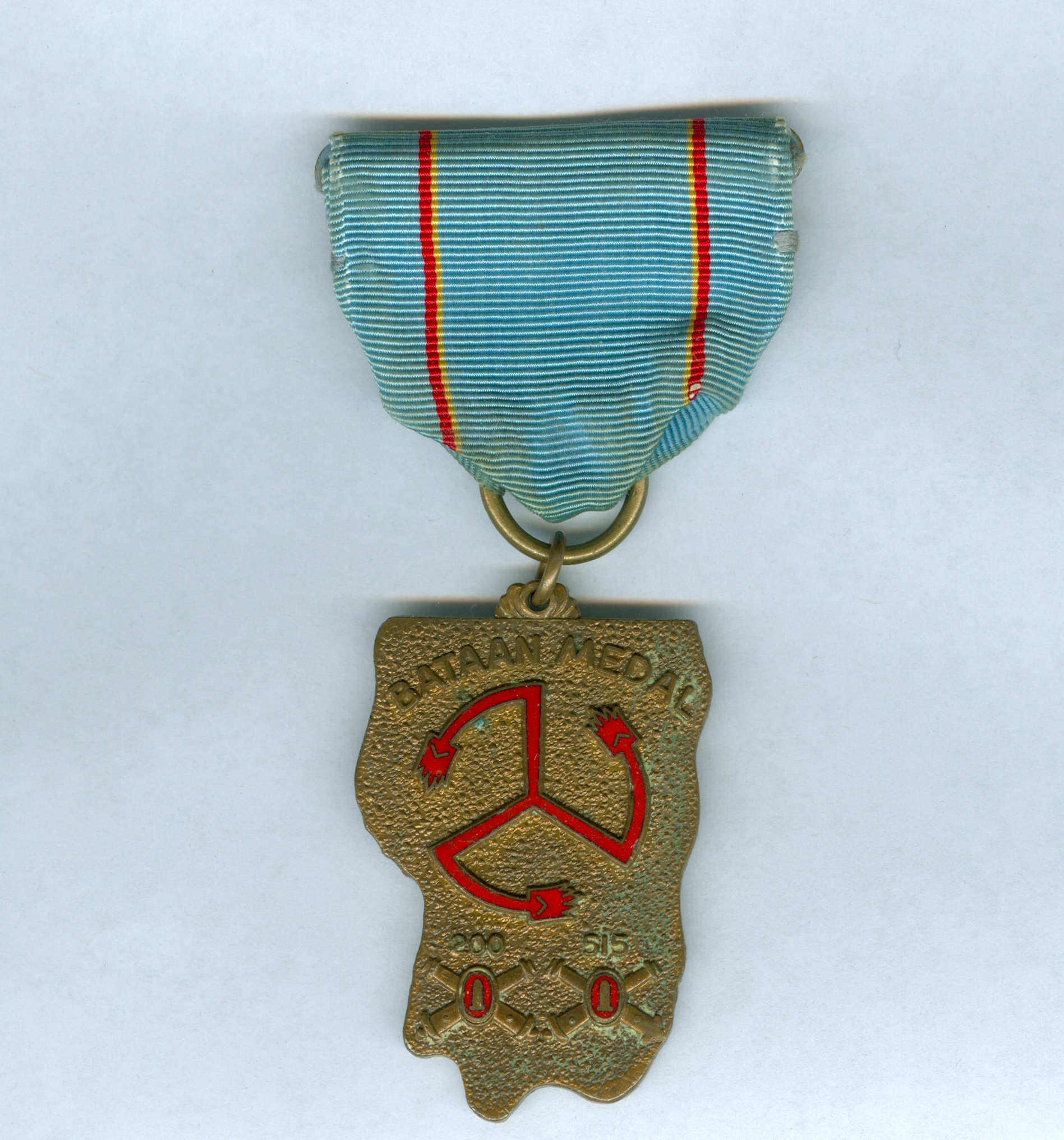.JPG)
by Renée Hart Wells
The mystery began almost twenty-five years ago when a World War II Bataan Death March Medal was found by Robin Hill on a Sour Lake School bus. All attempts to locate the owner of the medal proved futile, but Rebecca Hill, director of the Bertha Terry Cornwell Museum in Sour Lake, continued the quest for years, finding only that the medal was awarded by a New Mexico organization to a Hardin County enlistee. Recently, she brought the medal to the Museum of Hardin County where Glen Cook said that the soldier was Grover Will, a man that he knew well.
Grover Lee Will was born in 1917 and grew up in Hardin County where he attended school in the Chance community and Silsbee. His parents Bruce and Lelia Will and their ten children were living on the Chance Cutoff road in 1940 when Grover enlisted in the U.S. Army. He earned Sharpshooter Rifle and AA Gun Crewman certification in June 1941 and soon was shipped out to serve in the Air Offensive against Japan in the Philippine Islands. He served as private, corporal, and sergeant with the 515th Antiaircraft Battalion in the Battle of Bataan. This battle ended after four months with the surrender of the weakened and starving allied forces to the Japanese on April 9, 1942.
With this surrender about 12,000 American and 63,000 Filipino soldiers became prisoners of the Japanese. Grover Lee Will was one of those prisoners. What followed was the wartime atrocity known as the Bataan Death March in which the prisoners were forced to march to a prison camp over 65 miles up the Bataan Peninsula. During this ordeal the Japanese guards killed almost 17,000 men. The surviving prisoners were given little food or water during the march and conditions at the prison camp were almost as bad.
When U. S. forces began their return to the Philippines, Japan moved the prisoners on "hell ships" to serve as slave laborers in Japanese industry. Grover told his brothers that he was able to put sand in the gas tank of a Japanese truck and was punished for that act. By the end of the war, two-thirds of the prisoners had died. When Grover Will was repatriated, he was sent to a Houston hospital, but the once strong, hardy young man weighed only 115 pounds and was severely crippled from arthritis and the poor health brought on by his 42 months of imprisonment. In fact, both of his legs had to be amputated. While he was in the Houston hospital, he was visited by General McArthur and interviews were in the Houston newspapers.
Back home in Hardin County, Grover's spirit remained strong. His ingenuity and perseverance led him to create ways to make himself useful. He took a wheelchair apart and made an attachment for his woodworking tools so that he could build small shelves. A device that he and a friend developed for his fishing rod enabled him to fish with his brothers, Ted and Otis. Through his hardships Grover kept his sense of humor and love of life. His nephews and nieces tell of their Uncle Bub's playfulness and good humored teasing.
A list of the medals awarded to Grover Lee Will include the American Defense Service Medal with one Bronze Star, Victory Ribbon, Asiatic Pacific Campaign Medal with two Bronze Stars, Philippine Defense Medal with one Bronze Star, and Seven Overseas Service Bars. The New Mexico National Guard awarded a Bataan Death March Medal to soldiers in the 200th and the 515th Coast Artillery in which 1800 soldiers from New Mexico served. This was the medal found by Robin Hill on the Sour Lake school bus. We still don't know how it got there, but we do know that it belonged to Grover Lee Will, the man remembered fondly by friends and family. One of his nephews says firmly--"Uncle Bub is my hero."

Grover Lee Will's Bataan Death March Medal